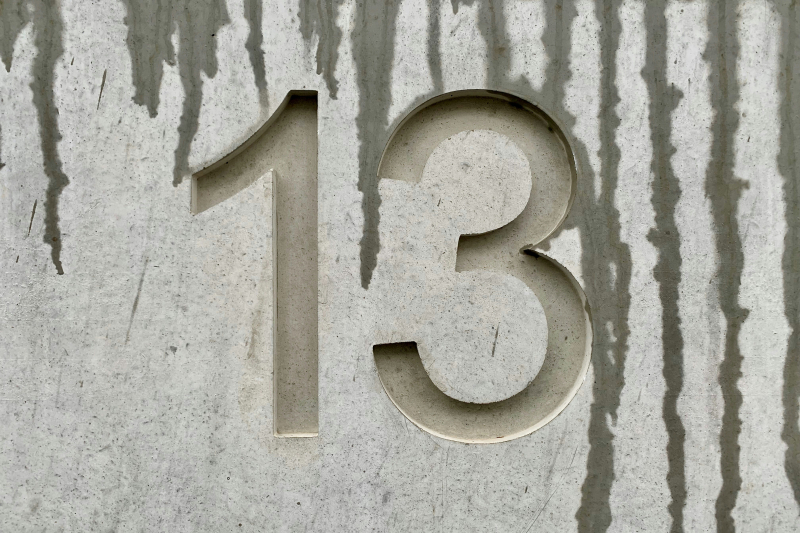Dozen’s evil twin
The number 13 seems to be feared almost worldwide. Slavic countries are no exception. Known in English as a baker’s dozen, the only nickname for it in Russian is much more spooky – the devil’s dozen (чёртова дюжина). It’s not entirely clear why this is so.
Possibly the fear of 13 is related to the biblical Last Supper, attended by Jesus and 12 apostles. This is why it’s considered bad luck to invite 13 people over for dinner – danger might befall one of them. Another version has to do with the ancient duodecimal numeral system based on the number 12, which is even handier than 10, since it can be evenly divided into halves, thirds, and fourths. So, a usual dozen is nice and neat, as opposed to its “devilish” counterpart.
The Holy Trinity
How do you turn thirteen, an ill-famed number, into the most favorable one? You extract ten from it! While 13 is unlucky, three is the pinnacle of numbers in local culture. According to Christian beliefs, God’s nature is threefold: it’s represented by God the Father, God the Son (Jesus Christ) and God the Holy Spirit. In Russian folktales, everything also comes in threes: brothers, heroes, bears… This number has been associated with something good and complete for centuries. There’s past, present, and future; our world, the underworld, and heaven; and the list can go on.
Numbers in popular sayings
Even numbers, such as two, on the contrary, are often associated with death. That’s why sometimes we say “two is for a dead person” (два на покойника) when we receive two items of anything: it implies you should add something third to the mix. The number of flowers given for happy occasions must be uneven, too. Again, the roots of this tradition go too deep to fully grasp what gave birth to them, but it’s still very much present in our culture.
You can also hear even the most non-superstitious person say “measure seven times and cut once” (семь раз отмерь и один раз отрежь). Why, according to this proverb, should you make sure everything’s alright exactly seven times, you might ask? Apparently, it doesn’t have to do with symbolism and in folklore it is typically used as a way to say “many; a lot.” It can also have mythological implications – according to some Slavic legends, there are seven heavens. Perhaps this is why, to this day, you can hear someone say “I’m on the seventh heaven (with joy)” (я на седьмом небе (от счастья)) – it equals “I’m over the moon”.
To learn more about Slavic culture, check out our stories on popular folktales and symbolic patterns.




